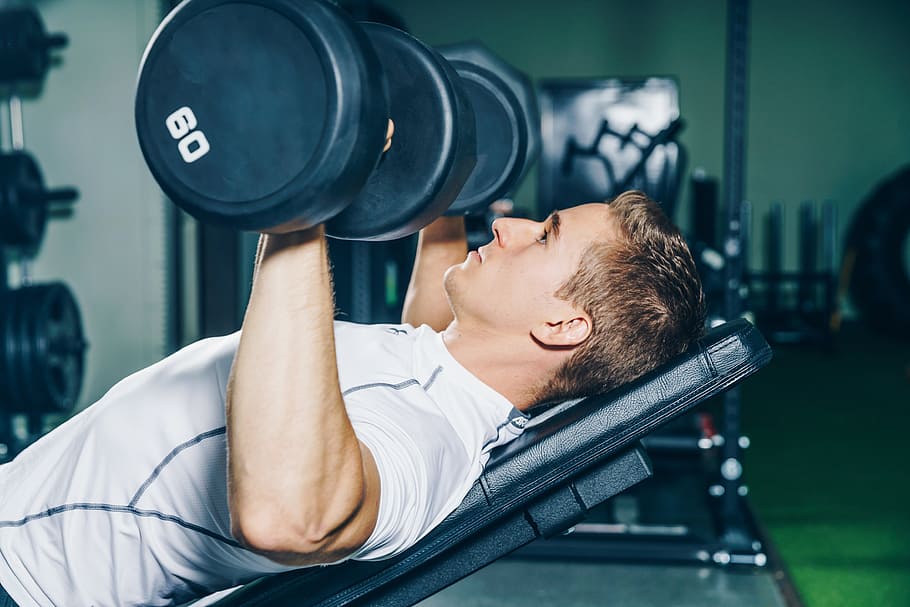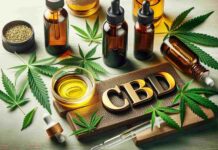Testosterone is a hormone that is essential for the functioning of the male body, especially the reproductive system. It is produced by the testes (also known as ovaries) and other tissues in the body. It plays a key role in a number of biological functions, including sexual differentiation, sperm production, sexual behavior and bone growth.
Testosterone is a powerful hormone produced by the testes, a set of organs in the male reproductive system. It is the primary male sex hormone and is responsible for the production of sperm, sperm quality and libido. The importance of testosterone in a male is so great that it is considered the “King of Male Hormones”.
Testosterone is one of the most important hormones for men. It is responsible for making men masculine and strong. It also stimulates growth and development of male sex organs and secondary sex characteristics. Testosterone is involved in the development of the male secondary sex characteristics which include deepening of the voice and a growth spurt during adolescence.
Androgens are a class of steroids that have anabolic (growth-promoting) and/or masculinizing effects in both men and women. Human libido, energy, immunological function, muscular growth, and bone health are all regulated by testosterone, the most significant androgen.
The molecule of testosterone
What is the process of testosterone production?

Testosterone is produced by Leydig cells in the testes of men. The ovaries and adrenal glands produce much less testosterone in females.
GNRH, which is produced in pulses by the hypothalamus, regulates testosterone production. The pituitary gland secretes LH in response to these pulses.
In the Leydig cells, LH promotes the enzymatic conversion of cholesterol to testosterone. Although “cholesterol” has a poor rep in the media, it is the precursor of all of our steroid hormones. (See the graph below.)
The production of steroid hormones. To expand, click on the image.
Loops of feedback
A feedback loop regulates testosterone, as it does other hormones.
If the body believes there is too much, it either “turns off the tap” at the source (the brain) or converts the excess to estradiol or DHT.
In males, there is a testosterone feedback loop.
Testosterone variations

Differences in testosterone levels between men and women
Normal blood total testosterone levels fluctuate over time and from person to person, but males have much more than women. Ranges that are typical:
230-1000 ng/dL in men 28-80 ng/dL in females
Testosterone and the passage of time
Testosterone levels increase during puberty from <20 ng/dL to around 300 – 1200 ng/dL at full maturity.
Serum testosterone is a circadian hormone that is produced in pulses. Levels are higher at night than during the day in the second part of puberty. Increases in circulating testosterone and estradiol cause a significantly greater production of growth hormone (112 to 3 times more) throughout puberty (GH).
Testosterone levels, on the other hand, decrease as we become older.
How testosterone levels may fluctuate as you get older
Exercise & testosterone

Muscle development
One of testosterone’s most important functions is to regulate muscular development.
The number and size of motor units are determined by androgen exposure throughout early development. The size and physiological properties of muscle fibres are determined by the number, size, and physiological characteristics of motor units.
As a result, the capacity of our muscles to hypertrophy (grow larger) in adulthood may be determined by intrauterine androgen exposure.
Exercise-induced testosterone release
Short-term testosterone release may be induced by exercise, which can boost muscular development.
Testosterone production and release are stimulated by activation of beta-adrenergic receptors in a dose-dependent manner – the more stimulation, the more synthesis.
As a result, increases in testosterone plasma concentrations are proportional to the intensity of exercise. In other words, the more testosterone you produce the harder you train, at least with resistance training or metabolic conditioning.
Scientists believe that sympathetic nerve activity and catecholamine release, which occur in much higher amounts during a 20-rep squat set than during a leisurely walk, increase testosterone during exercise.
However:
- It matters what kind of exercise you do. Long periods of endurance exercise seem to lower testosterone levels.
- It’s all about the sex. Men’s plasma testosterone levels rise following a variety of exercises, as long as the activity is of a high intensity. Women, on the other hand, have extremely modest and/or delayed testosterone surges, if any at all, in response to severe exercise.
Testosterone measurement
A single blood sample is sufficient to determine circulating testosterone levels, but physicians may also test salivary testosterone, and if you’re participating in the Olympics, you may be asked to submit to a urine test for androgens.
Because 98 percent of testosterone is linked to serum carrier proteins (sex hormone binding globulin or SHBG), changes in the amounts of these proteins will affect total testosterone levels.
SHBG is generated in the liver, and estrogens and hyperthyroidism enhance its synthesis. Androgens, aging, and hypothyroidism all lower SHBG levels. As a result, testing may check for variations in SHBG.
Low testosterone levels
A number of conditions may reduce testosterone production and, as a result, reproductive function. These elements include:
- chronically low calorie intake (>20% below basal needs) and chronically high calorie intake (especially if obesity results)
- vitamin/mineral insufficiency and poor nutrition intake
- low-fat diet
- depression
- drug use
- overtraining
- sexual activity is restricted
- Anxiety and stress
- aging
- Obesity and related metabolic problems
- Hormonal contraception is overused (in women)
- a long-term sickness or infection
- Sleep is poor, limited, and disturbed (including sleep apnea)
Low testosterone may affect both males and women. The following are some of the signs and symptoms of low testosterone:
- Low energy, weariness, and lethargy — a “mojo” deficit
- reduced work capacity and strength
- Low sexual desire, a lack of sexual response, and lesser orgasms or trouble reaching orgasm are all symptoms of a lack of sexual desire.
- Increased body fat and loss of lean body mass, including muscle and bone density
- elevated blood pressure, increased cardiovascular risk (including a bad blood lipid profile)
Testosterone supplementation
Many athletes use testosterone supplements to build larger muscles and/or improve sports performance.
Excessively high testosterone levels given over a long period of time may cause:
- acne, as well as oilier skin
- emotional swings that range from irritability to pleasure (though evidence is mixed regarding the prevalence and details, as well as individual susceptibility)
- Hair growth or hair loss (in women)
- facial features are becoming more masculine, and the voice is becoming deeper (in women)
- Excess testosterone turns to estrogen, causing men to develop breasts.
- male testicular atrophy
- Female menstrual cycles are disrupted, and the prevalence of reproductive diseases is on the rise.
- muscle and connective tissue injury of various kinds
- higher risk of cardiovascular illness, such as high blood pressure and cardiac myopathies, as well as deep vein thrombosis and embolisms
Endocrinologists are beginning to prescribe testosterone for therapeutic purposes, either as a replacement (for example, in older men and women) or to alleviate symptoms of a variety of chronic degenerative illnesses. The above-mentioned adverse effects of too much testosterone do not usually apply to therapeutic or replacement dosages.
Conclusions and suggestions
To increase testosterone levels for muscle development, recuperation, and health, follow these steps:
- Exercise on a regular basis and at a high intensity.
- Don’t limit calories to less than 20% of your daily requirements.
- Make sure you’re getting enough micro- and macronutrients in your diet.
- Participate in frequent, safe sexual activity (yep, PN advises you to get some action!)
- Drugs and medicines should be avoided.
- 7-9 hours of sleep each night is recommended.
- Control your anxiety and stress levels
References
To see the information sources mentioned in this article, go here.
Endocrinology of Male Reproduction (Endocrinology of Male Reproduction) (Endocrinology of Male Reproduction) (Endocrinology of Male
Merck Manual, 17th ed. Merck Research Laboratories, Whitehouse Station, NJ. 1999. Beers MH, Berkow R, eds.
Harper’s Illustrated Biochemistry, 26th ed. McGraw Hill, 2003. Murray RK, Granner DK, Mayes PA, Rodwell VW, eds.
Borer, KT. Exercise Endocrinology. Champaign, IL: Human Kinetics, 2003.
Harvey RA, Champe PC eds. Pharmacology 2nd ed. Lippincott Williams & Wilkins. 2000.
Low free testosterone concentration as a possible treatable cause of depression symptoms in older men, Almeida OP, et al. Arch Gen Psychiatry, 2008, vol. 65, no. 2, pp. 283-289.
Goh VH & Tong TY. Sleep, sex steroid hormones, sexual activities, and aging in Asian men. J Androl 2009;Aug 14 Epub.
Hormonal reactions to various resistance training schemes of comparable total volume, Uchida MC, et al. J Strength Cond Res, 2009, vol. 23, no. 3, pp. 2003-2008.
Effects of endurance exercise on men’s reproductive systems: the “exercise-hypogonadal male syndrome,” according to AC Hackney. 2008;31:932-938 in J Endocrinol Invest.
JS Rocha et al. In mutant mice, mild calorie restriction has no effect on testosterone levels or testicular gene expression. 2007;232:1050-1063 in Exp Biol Med (Maywood).
AM Traish, et al. I. Metabolic syndrome and erectile dysfunction, the dark side of testosterone deprivation.
A few years ago, scientists found that testosterone levels in men increase after they reach their early forties. However, not everyone is able to increase their levels naturally or reach the desired level.. Read more about testosterone food and let us know what you think.
Frequently Asked Questions
Why is testosterone important in males?
Testosterone is a hormone that is important in males because it helps with the development of secondary sex characteristics like facial hair, body hair, and muscle mass.
What do I need to know about taking testosterone?
Testosterone is a hormone that is naturally produced in the body. It helps to maintain healthy levels of red blood cells, muscle mass, bone density, and sex drive.
What level of testosterone should a man have?
Testosterone levels are highly individual and can vary greatly from person to person. The average range for men is between 300-1,000 ng/dl.











